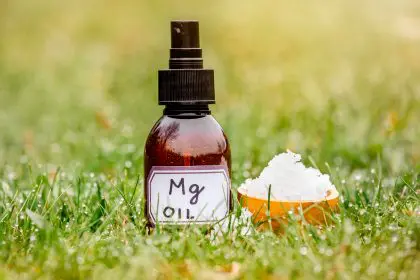As we enter the cold and flu season, many are turning to natural remedies to manage symptoms and speed up recovery. One common supplement that frequently comes up in conversations is zinc. But does zinc truly help with colds, and if so, how? This article examines the research behind zinc supplementation, its mechanisms, optimal dosage, potential side effects, and zinc-rich foods to boost your immune system.
How zinc helps reduce the severity of colds
The short answer is yes, zinc can be effective in reducing the duration of a cold. Research has consistently supported its role in shortening cold symptoms, particularly if taken early. A meta-analysis conducted in 2017 found that zinc supplementation could reduce the duration of a cold by up to 33%. However, it’s important to note that while zinc can help lessen the severity of symptoms, it does not prevent you from catching a cold in the first place.
The science behind zinc’s effectiveness
Zinc is a critical mineral that plays a central role in immune function. It helps support the immune system by enabling the proper growth and function of immune cells, such as T-cells, which are essential for fighting off infections. People who are zinc-deficient often have a weakened immune response, making them more susceptible to infections like the common cold.
Zinc works on several levels to combat colds:
- Blocking viral replication – Zinc prevents viruses from entering cells and replicating.
- Enhancing immune cell function – Zinc supports the proper functioning of immune cells, aiding in the body’s ability to fight infections.
- Supporting respiratory health – It improves the respiratory system’s ability to clear mucus, making it easier to recover from respiratory symptoms like congestion.
Given these factors, zinc can be a powerful ally in the fight against colds, especially when taken at the first sign of symptoms.
How to take zinc for cold relief
The most common and effective forms of zinc for cold treatment are tablets and lozenges. Zinc lozenges, in particular, have been shown to be especially effective due to their ability to dissolve in the mouth, allowing for better absorption. Experts recommend lozenges that contain zinc acetate or zinc gluconate, as these forms are easier for the body to absorb and can be more effective in shortening cold symptoms.
It’s important to note that zinc nasal sprays, although popular, can cause side effects like a loss of smell and taste and are generally not recommended for cold treatment.
Determining the right dosage of zinc
There is no one-size-fits-all recommendation when it comes to zinc dosage for cold treatment. However, most experts agree that doses ranging from 50 mg to 180 mg per day for one to two weeks are generally safe and well tolerated for short-term use. Some research suggests that a dose of 75 mg or more may be optimal for effectively managing cold symptoms.
Dr. Joseph Mercola, a well-known advocate of alternative medicine, recommends starting with 80-90 mg of zinc at the first sign of cold symptoms. However, it’s crucial to avoid exceeding recommended dosages, as higher levels can cause adverse effects.
Potential side effects of zinc supplementation
While zinc is generally safe when taken as directed, excessive amounts can lead to side effects. Some of the most common side effects include:
- Nausea and diarrhea – These can occur, especially when zinc is taken on an empty stomach.
- Altered taste – Some people experience a metallic taste in their mouth after using zinc lozenges or supplements.
- Copper deficiency – Prolonged use of high doses of zinc can interfere with the absorption of copper, potentially leading to a deficiency.
Dr. Stephen Vogel, a family medicine physician, warns that anything above 100 mg per day increases the risk of side effects without providing additional benefits. To maintain a healthy balance, it’s essential to ensure you’re not over-supplementing with zinc while neglecting other essential nutrients like copper.
Who should avoid zinc supplementation?
Though zinc is beneficial for many, there are certain groups of people who should approach zinc supplementation with caution:
- Those with copper deficiency – Excessive zinc can worsen copper deficiency, which can negatively impact overall health.
- People on certain medications – Zinc can interact with medications such as antibiotics and diuretics, potentially reducing their effectiveness or causing unwanted side effects.
- Pregnant or breastfeeding women – It’s essential to consult a doctor before taking zinc supplements during pregnancy or breastfeeding to ensure safety and proper dosing.
If you fall into any of these categories, speak to a healthcare provider before starting zinc supplementation for colds.
Zinc-rich foods to incorporate into your diet
While supplements are an easy way to increase zinc intake, there are also many foods that are rich in zinc. Incorporating these foods into your diet can help support your immune system year-round:
- Oysters – One of the best sources of zinc, with a single serving containing more than 100% of the recommended daily intake.
- Alaskan King crab – Another excellent seafood option for boosting zinc levels.
- Grass-fed beef and lamb – Animal proteins are rich in zinc and are easily absorbed by the body.
- Pastured chicken – A good source of zinc with additional protein benefits.
- Swiss and cheddar cheese – Dairy products contain zinc and offer additional nutrients like calcium.
- Yogurt – Also provides zinc, along with probiotics that support gut health.
- Mushrooms – Among the best plant-based sources of zinc, though the bioavailability of zinc from plants can be lower than from animal sources.
By eating a balanced diet rich in these zinc-containing foods, you can support your immune system naturally and help prevent cold symptoms from worsening.
The bottom line on zinc for colds
Zinc can be a valuable supplement for reducing the duration and severity of cold symptoms, especially if taken early at the onset of illness. While zinc won’t prevent you from catching a cold, it can help your body fight the virus more effectively and speed up recovery. If you’re feeling sick, consider adding zinc lozenges or a zinc-rich food to your routine to support your immune system.
However, it’s essential to use zinc cautiously, as excessive amounts can lead to side effects. Always follow recommended dosages and consult with a healthcare provider if you have any concerns about zinc supplementation.














